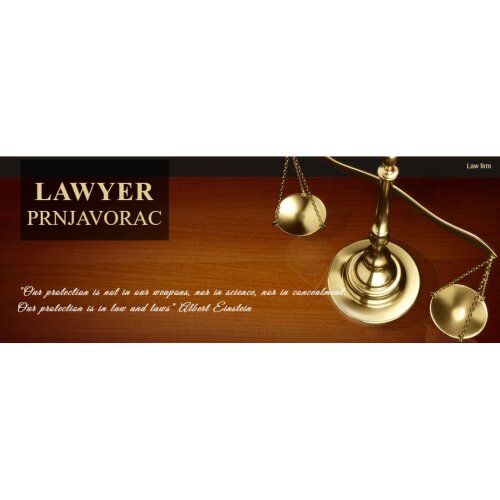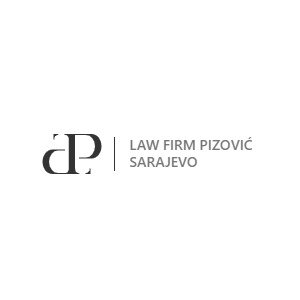Best Renewable & Alternative Energy Lawyers in Bosnia and Herzegovina
Share your needs with us, get contacted by law firms.
Free. Takes 2 min.
Or refine your search by selecting a city:
List of the best lawyers in Bosnia and Herzegovina
About Renewable & Alternative Energy Law in Bosnia and Herzegovina
Renewable and alternative energy law in Bosnia and Herzegovina (BiH) is a rapidly developing field that aims to address the country’s growing energy needs while promoting environmental sustainability. Bosnia and Herzegovina possesses significant natural resources for renewable energy, such as hydropower, solar, wind, and biomass. With increased awareness regarding climate change and the need to reduce reliance on fossil fuels, the government has implemented various legal measures to encourage investment and development in renewable and alternative energy sectors. This area of law covers a range of issues including licensing, incentives, environmental compliance, land use, and more, all governed by a unique constitutional structure that includes both state-level and entity-level competencies.
Why You May Need a Lawyer
Navigating the legal landscape of renewable and alternative energy in Bosnia and Herzegovina can be complex, especially due to overlapping jurisdictions and evolving regulations. You may require legal assistance for several reasons, such as:
- Securing permits and authorizations for renewable energy projects
- Understanding incentives, subsidies, or support schemes available for energy producers
- Handling cross-border energy transactions and foreign investments
- Addressing land use and zoning issues for installation of renewable energy facilities
- Ensuring environmental compliance and conducting environmental impact assessments
- Resolving disputes related to energy contracts, grid access, or regulatory compliance
- Drafting and negotiating contracts for equipment supply, construction, or operation of energy facilities
- Dealing with energy trading, sales, and grid integration matters
Legal counsel ensures your project complies with current legislation, mitigates risk, and takes full advantage of available government support mechanisms.
Local Laws Overview
Renewable and alternative energy in Bosnia and Herzegovina is governed by several layers of legislation due to the country’s administrative structure:
- State-Level Framework: The State of Bosnia and Herzegovina regulates sectors that affect foreign relations and international obligations, including alignment with the EU Energy Community and international treaties.
- Entity-Level Laws: The Federation of Bosnia and Herzegovina and Republika Srpska have their own energy laws, regulatory agencies, and incentive schemes that apply within their territories. Laws can vary significantly between entities, especially regarding permitting and incentives.
- Permitting and Licensing: Energy projects usually require multiple permits, including environmental, construction, operational, and grid connection authorizations, often involving both entity and municipal authorities.
- Feed-in Tariffs and Incentives: Both entities have implemented feed-in tariffs and other financial mechanisms to support renewable energy production, although schemes and eligibility may differ.
- Grid Access: Regulations govern how renewable energy producers can connect to and sell electricity via the national grid, with specific technical standards to be met.
- Environmental Impact: Projects must comply with environmental regulations, including mandatory environmental impact assessments.
- Privatization and Concessions: Land and resource use often require concession agreements, particularly for hydropower and wind projects.
Entity-level energy agencies and regulators play a key role in the practical implementation of policy. Investors and developers must be prepared to conduct thorough due diligence and interface with multiple authorities at different levels.
Frequently Asked Questions
What are the main sources of renewable energy in Bosnia and Herzegovina?
The country’s primary renewable energy sources include hydropower, solar, wind, and biomass. Hydropower is the most established, but interest in wind and solar energy is rapidly increasing.
Which level of government regulates renewable energy?
Both the State and entity-level governments regulate renewable energy. While overarching policy and international agreements are managed at the State level, most permitting, licensing, and incentive administration is done by the two entities, the Federation of BiH and Republika Srpska.
What incentives exist for renewable energy investors?
Investors may access feed-in tariffs, guaranteed purchase status, and other fiscal incentives. Incentive schemes differ between entities, so it is essential to consult local regulations.
What permits are required to build a renewable energy facility?
Typical permits include environmental approval, location and urban planning permits, construction and operation permits, and grid connection authorization.
Is an environmental impact assessment mandatory?
Most renewable energy projects, especially those with significant impact like hydropower and wind farms, require an environmental impact assessment as part of the permitting process.
Can foreigners invest in renewable energy projects?
Yes, foreign investors are permitted and encouraged to invest in the renewable energy sector in Bosnia and Herzegovina, although they must comply with all local laws and procedures.
How is electricity from renewables sold?
Electricity produced from renewable sources can be sold to the grid, usually under terms of a power purchase agreement (PPA). The framework and guaranteed prices depend on the feed-in tariff schemes in place.
Are there quotas or limits for renewable energy projects?
Some incentive schemes may have annual or total capacity quotas, especially for feed-in tariffs. Projects exceeding these quotas may not qualify for certain incentives.
What are the main challenges in developing a renewable energy project?
Key challenges include complex permitting processes, administrative barriers, varying entity-level regulations, and ensuring compliance with environmental requirements.
What happens if a company violates renewable energy laws?
Violations can result in fines, revocation of permits, or loss of eligibility for incentives. Severe cases can lead to criminal charges or civil liability for environmental harm.
Additional Resources
For more guidance and official information, consider these resources:
- State Electricity Regulatory Commission (DERK)
- Regulatory Commission for Energy in the Federation of BiH (FERK)
- Regulatory Commission for Energy of Republika Srpska (RERS)
- Ministry of Foreign Trade and Economic Relations of Bosnia and Herzegovina
- Entity ministries responsible for energy and environment
- Chambers of commerce and industry associations related to energy
- International organizations active in BiH, such as the Energy Community and UNDP
Next Steps
If you are considering launching a renewable or alternative energy project in Bosnia and Herzegovina, or require legal advice on ongoing operations, consider the following steps:
- Identify where your project will be located to determine which entity’s laws apply
- Consult official resources and regulatory bodies for up-to-date requirements
- Engage a lawyer or law firm specialized in energy law and familiar with local procedures
- Perform due diligence regarding environmental, land use, and permitting obligations
- Prepare necessary documentation and submit permit applications as required
- Stay informed about any changes in legislation or incentive schemes that could affect your project
Legal guidance from a professional with experience in renewable and alternative energy law in Bosnia and Herzegovina can streamline your projects and help you navigate regulatory challenges efficiently.
Lawzana helps you find the best lawyers and law firms in Bosnia and Herzegovina through a curated and pre-screened list of qualified legal professionals. Our platform offers rankings and detailed profiles of attorneys and law firms, allowing you to compare based on practice areas, including Renewable & Alternative Energy, experience, and client feedback.
Each profile includes a description of the firm's areas of practice, client reviews, team members and partners, year of establishment, spoken languages, office locations, contact information, social media presence, and any published articles or resources. Most firms on our platform speak English and are experienced in both local and international legal matters.
Get a quote from top-rated law firms in Bosnia and Herzegovina — quickly, securely, and without unnecessary hassle.
Disclaimer:
The information provided on this page is for general informational purposes only and does not constitute legal advice. While we strive to ensure the accuracy and relevance of the content, legal information may change over time, and interpretations of the law can vary. You should always consult with a qualified legal professional for advice specific to your situation.
We disclaim all liability for actions taken or not taken based on the content of this page. If you believe any information is incorrect or outdated, please contact us, and we will review and update it where appropriate.
Browse renewable & alternative energy law firms by city in Bosnia and Herzegovina
Refine your search by selecting a city.













